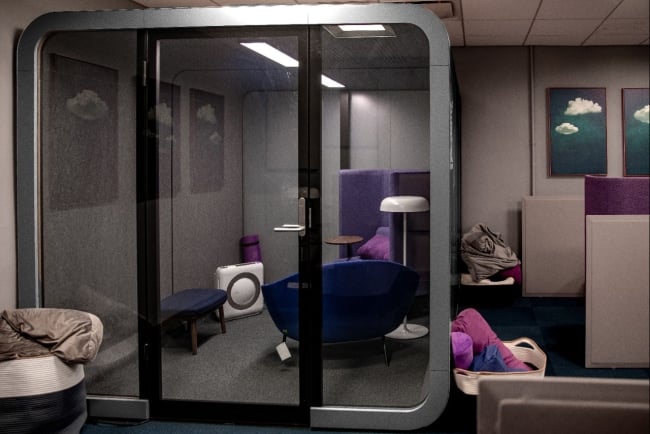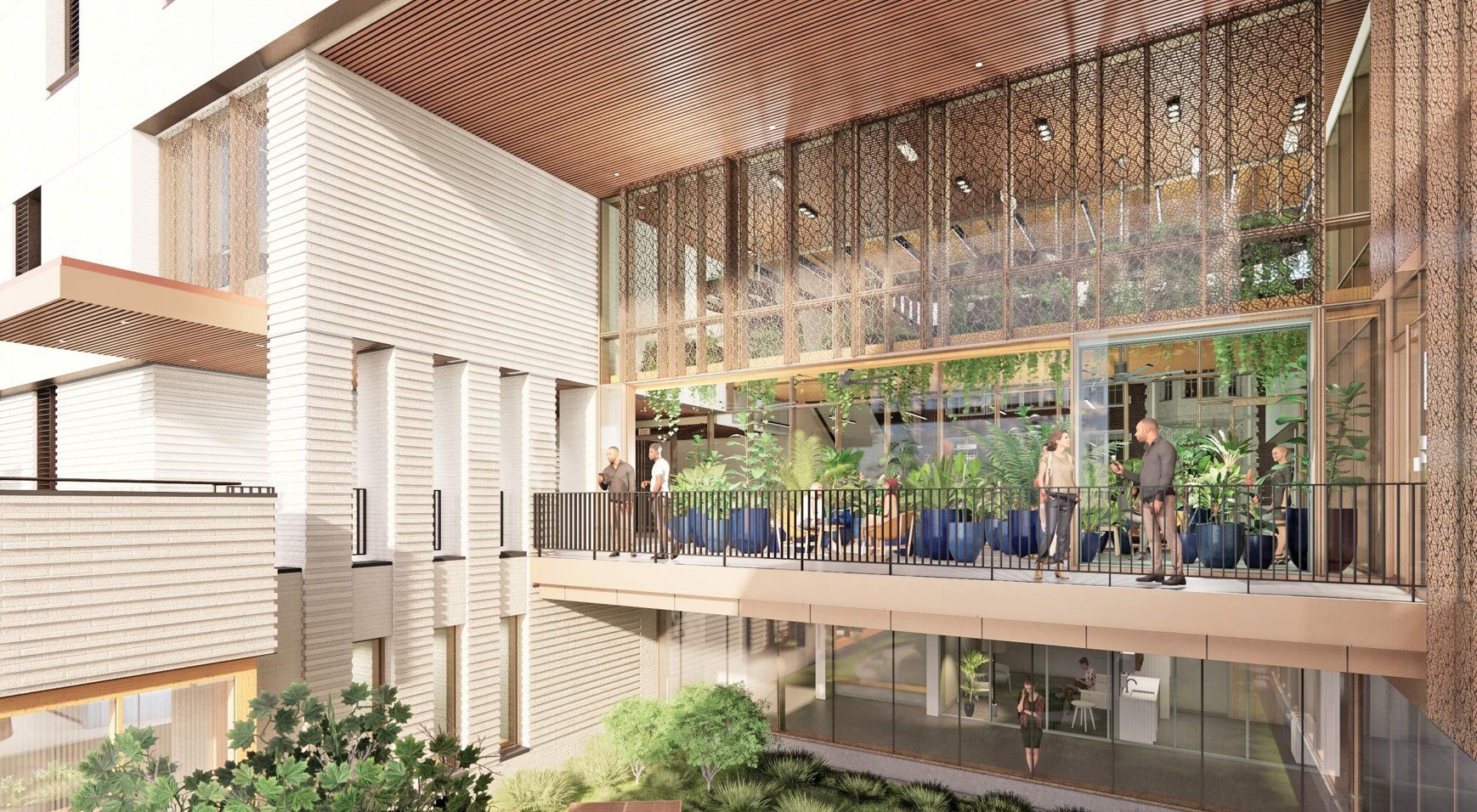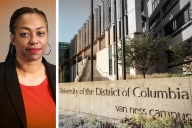You have /5 articles left.
Sign up for a free account or log in.

New York University’s Bobst Library low-sensory room features a soundproof booth and adjustable lighting.
Tracey Friedman/New York University
Improving campus spaces can benefit students in their overall engagement, assist in their well-being or promote belonging. A December 2022 Student Voice survey from Inside Higher Ed and College Pulse found two-thirds of students factor facilities at least somewhat into their college decisions. In addition, 31 percent of students surveyed say poor maintenance, cleaning or overall building conditions impacted their ability to focus or learn somewhat or a great deal.
Inside Higher Ed collected five examples of new campus spaces that prioritize student’s success on campus through teaching new skills, allowing for relaxation or investing in their personal health.
New York University — Low-Sensory Room
This fall, New York University joined other institutions in offering space for students with acute sensory needs to relax. The low-sensory room is located on the first floor of Bobst Library and was a collaboration between the center for student accessibility and the disability, inclusion and accessibility provostial working group.
Inside the room, students can engage with a sensory pod, high-backed chairs and table desks, bean-bag pillows and yoga mats. The room is also fitted with adjustable lighting and noise-cancelling wall paneling. The space is large enough to accommodate between 12 to 14 students at one time.
Students who benefit from low-sensory rooms include those who are on the autism spectrum, have ADHD, or have a mental health disability. Neurodiverse student enrollment in NYU’s Moses Center Connections Program has grown 45 percent over the past three years, and this space can help accommodate learners who face additional barriers to academic success.
University of Dayton — Story Studio
The University of Dayton created multimedia production space within the Roesch Library on campus in 2019, and more recently added a podcast studio, to give students a place to learn digital production skills.
The studio has microphones, an audio mixer, video cameras, a video switcher and screens so students can connect virtually with guests via Zoom or other online platform. All students at UD have access to the studio and can use it for class assignments, pre-recorded job interviews, marketing videos, rehearsals or personal use. Faculty members have also used the space to record video lectures for a flipped classroom model.
Since 2021, the Story Studio has had more than 300 bookings and even more uses. The podcast studio launched in fall 2023, with library staff offering tours and orientations to help students engage with the space.
Princeton University — Frist Health Center
A new donor-funded project at Princeton University will expand health and wellness services and spaces on campus. The Frist Health Center, named after funder Thomas Frist Jr., is slated to open fall 2025 and replace the McCosh Health Center and renovate academic building Eno Hall.
The center will feature an atrium, connecting it to Eno Hall, a winter garden and a multipurpose room for health and wellness programs. Offices housed in the building will include medical services, health promotion and prevention, counseling and psychological services and the sexual harassment/assault advising, resources and education (SHARE).

The new health center will feature adjustable lighting and temperatures as well as access to nature and light in the winter garden.
Princeton University
The design draws on student input with goals of relaxation, contemplation, open air, natural light and integrated waiting rooms for all services to allow for easy navigation and privacy.
Hampton University — She Care Wellness Pods
Rather than building off established space, Hampton University and its partners opened wellness pods to add culturally competent mental health services for women at the HBCU.
The Boris Lawrence Henson Foundation and kate spade new york launched She Care Wellness Pods at Alabama State University in April, and Hampton’s pod opened in November.
Inside the pod, female students can receive free mental health therapy sessions, utilize the hangout space or participate in wellness programming including yoga and African dance and workshops for anxiety, sleep deprivation and insomnia. The pod also has quiet spaces for rest and features a mural done by Hampton student T’Kiyah Reeves.
The pod concept aims to help normalize therapy within the Black community and educate students on the importance of self-care and mental health awareness, Kristie Norwood, director of HU Student Counseling Center shared in a September press release.
Virginia Tech — Brain Gym
As part of a new Innovation Campus, located in North Potomac Yard, Va., Virginia Tech will add a Brain Gym within the first academic building.
Unlike a wellness space or low-sensory space, the brain gym is meant to occupy your brain in “resetting after hard events at work,” according to the space designer.
Within Virginia Tech’s Brain Gym will be space for students to relax between classes sitting in a swing chair or beanbag, or stay stimulated with different activities hanging on the walls, including puzzles, books and other games. There’s also a separate room with audiovisual assets for gaming.
Virginia Commonwealth University — Reflection Room
Within the James Branch Cabell Library, students at Virginia Commonwealth University can visit the Reflection Room, a place for meditation, contemplation and prayer, which opened this semester.
The donor-funded project cost $370,000 and was imagined as an interfaith location for anyone who needed to step away to reflect and pray. The room is 400-square-feet and has minimal furnishings to create a calm environment.
To maintain the integrity of the room’s purpose, students are not allowed to bring in food or electronics and cannot sleep there.
Does your institution have a new space on campus dedicated to student success? Tell us about it.








